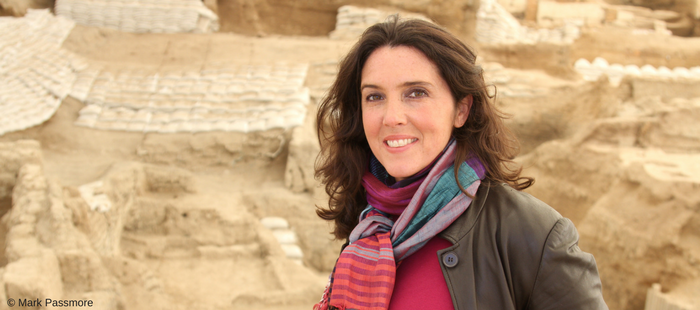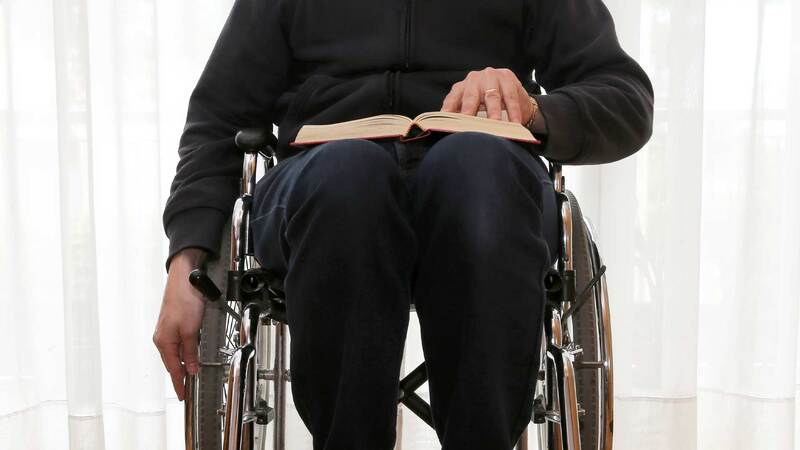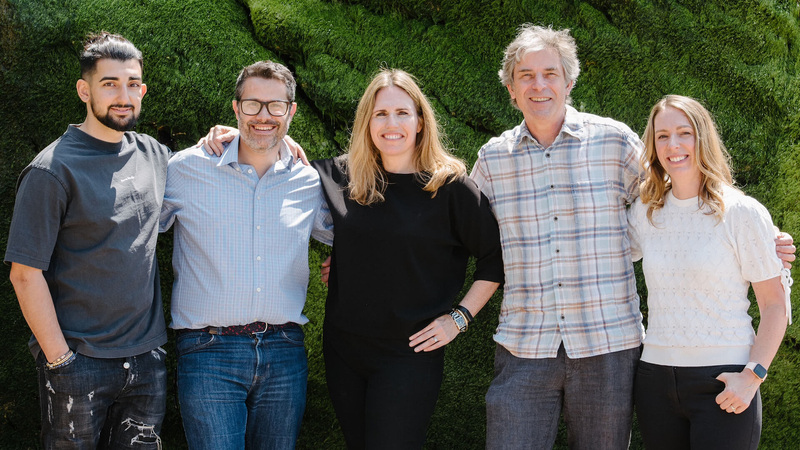You are viewing your 1 free article this month. Login to read more articles.
Bettany Hughes | 'A producer told me nobody wants to be lectured at by a woman'

Caroline Sanderson is a non-fiction writer, editor and books journalist. Her books include a travel narrative, A Rambling Fancy: in the F ...more
 Caroline Sanderson
Caroline SandersonCaroline Sanderson is a non-fiction writer, editor and books journalist. Her books include a travel narrative, A Rambling Fancy: in the F ...more
Classical historian Bettany Hughes, a familiar face from her marvellously immersive television series such as “The Spartans” and “Divine Women”, first visited Istanbul when she was 18 and immediately fell in love with that iconic city. Now, more than 30 years later, after making almost the same number of visits to the Turkish city, comes her enthralling history of the place. Ten years in the researching and writing, Istanbul: A Tale of Three Cities (W&N, January) packs the story of its three iterations—Byzantium, Constantinople and Istanbul—into one volume, from its earliest settlement in 6000BC, to the 20th century.
Though it sweeps across eight millennia, this glinting mosaic of a book is divided up into short episodic tesserae that evoke vivid aspects of the city’s history and demonstrate the long reach of its influence: from the Empress Theodora, who rose from destitute dancing girl to rule the Byzantine empire, and the origins of the Nicene Creed, still recited in our churches today; to how it made citizens of marauding Vikings and inspired Leonardo da Vinci to bid to build a bridge across the Golden Horn. “I wanted to keep the chapters short so the reader never feels overwhelmed,” Hughes tells me as we sit in her book-lined study at her home in west London. “I think television is good training for that. The point of doing TV is not to prove how clever you are, but to make other people realise how clever they are; and I think it’s the same with books. I’m horrified at the idea of intimidating someone. I think that’s the opposite of what we should be doing.”
Hughes wanted to give some alternative perspectives on a city that has been much written about through the ages. Fundamentally, she sought to orientate it differently, in the literal meaning of that word. “Almost everything I have read about Istanbul talks about it as the gateway to the east. We’re so programmed to think of it like that but for much of the world, it’s the gateway to the west, or even where north meets south. On my first visit, I actually approached the city from the east, after travelling through Asia Minor and Anatolia. So it has always felt important to me to experience it the other way around.”
Recent archaeological discoveries, made during the construction of the Eurasia Tunnel beneath the Bosphorus and the extension of the city’s Metro system, have helped render the book more complete a history, too. “Nobody has really focused on Istanbul’s prehistoric roots but now there’s all this very early stuff coming up out of the ground. I was lucky enough to go and walk through the digs, so I’ve seen these incredible Neolithic footprints in the mud from the first people who came to the city 6,000 years ago.”
The people’s city
Hughes was also keen to tell Istanbul’s story not just through its sultans and sultanas, its emperors and empresses, but from the point of view of its ordinary people. “When you look at Istanbul, from Byzantium to the present day, it’s striking how it has always been a city of the people, with a political voice, right from its early classical history. It’s quite unique in that, and the city’s rulers have always had to be very careful about how they negotiate their power with the people on the streets. When I was there researching, I got caught up in the Taksim Square riots, and I missed the recent coup by only a couple of days. There’s this sense that the streets are a place where the voice of the people can be heard. So I was always trying to think from the bottom up, and work out what it was actually like to walk those streets, whether in 460BC or 1453AD.”
I cannot write a history unless I go to the place where it happened: it feels as if I can’t tell the full story otherwise
Given that it has long been one of the world’s most important trading hubs, Hughes argues that the history of Istanbul only makes sense if you also look at the myriad places it has been connected to, on all points of the compass. “And I cannot write a history unless I go to the place where it happened: it feels as if I can’t tell the full story otherwise.”
So as well as her numerous trips to Istanbul itself, Hughes also visited Italy, Albania, Greece, Georgia, Armenia, the Middle East and even China. “Istanbul had a wondrous reputation in China: there were all these fantastical stories about it being a place where lambs grow out of the soil, and buildings drip with gold.” Hughes highlights a trip she made to the port of Poti in Georgia, where she was “bitten to pieces by mosquitos” while investigating the place from which the majority of the women in the sultans’ harem were trafficked. “It really made me think what it was like for girls who from the age of eight were being traded as slaves, right into the 20th century.”
Hooked on history
Hughes’ love of classical history was first sparked by a BBC documentary about Tutankhamun she watched as a child. She shows me the school exercise book where she wrote her very first story, in which she speculates as to the cause of Tutankhamun’s untimely death (“I went with the poisoned mosquito bite thesis”), complete with a pencil drawing of the boy pharaoh. While there was nothing historical about her upbringing—“my parents were both actors; out-of-work actors most of the time”—there was a lot of sitting round the kitchen table telling stories. “I remember my father saying: ‘You’ve just got to walk through the world with your eyes open.’ He was saying that as an actor but it’s affected how I work as a historian I think.”
The decision to become a classical historian was down to “bloody-mindedness”, she says. “When I was at Oxford in the mid-1980s, there was a real danger that the Classics faculty would close because of the idea that the ancient world had no relevance to modern society. There was a sense that with the Millennium approaching, all the answers were going to be in future somehow. So I think I was partly just trying to prove people wrong. Because I instinctively knew that classical history did matter.”
Hughes, who describes herself as “quite a scrapper”, was the first woman to present a history series on British television. A fact to be proud of, but also one that makes her rage. “When I gave the Huw Weldon Memorial Lecture in 2011, a researcher looked up the first female historian to present a television history series, and discovered that it was in fact me. In the year 2000! Which is outrageous. Things are changing fast now but I’ve had to fight a lot of prejudice. A producer once said to me: nobody’s interested in history anymore, history doesn’t work on television, and nobody wants to be lectured at by a woman.”
Happily, Hughes has now written and presented around 50 different TV series, and is set to front another “big and chunky” history series next year. “I’m not allowed to tell people what it is, but Istanbul will feature.”
What does she think the future holds for Istanbul, a city she dubs “a Rosetta Stone for international affairs”? “It’s a place where politics and history move very fast. So I genuinely don’t know. But there’s no doubt that officially and unofficially the eyes of the world are on what is happening in Istanbul and Ankara. And philosophically speaking, Istanbul has always had this sense of being cosmopolitan: that Greek word meaning ‘citizen of the world’. It’s the notion that whoever you are, and wherever you come from, you’ve got to find a way to connect with people from everywhere else. That’s the biggest reason for Istanbul’s importance right now.”









